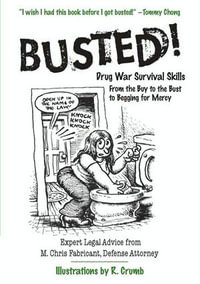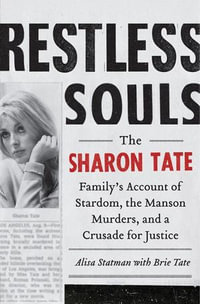
At a Glance
ePUB
eBook
$208.34
or 4 interest-free payments of $52.09 with
orInstant Digital Delivery to your Booktopia Reader App
The Common Law is a book that was written by Oliver Wendell Holmes Jr. in 1881, 21 years before Holmes became an Associate Justice of the Supreme Court of the United States.
The book is about common law in the United States, including torts, property, contracts, and crime. It is written as a series of lectures.
One of the most famous aphorisms to be drawn from this book occurs on the first page: "The life of the law has not been logic: it has been experience." Holmes's pronouncement is a subtle qualification of a dictum by the famous seventeenth-century English jurist Sir Edward Coke: "Reason is the life of the law."
CONTENTS
LECTURE I. — EARLY FORMS OF LIABILITY.
LECTURE II. — THE CRIMINAL LAW.
LECTURE III. — TORTS.—TRESPASS AND NEGLIGENCE.
LECTURE IV. — FRAUD, MALICE, AND INTENT.—THE THEORY OF TORTS.
LECTURE V. — THE BAILEE AT COMMON LAW.
LECTURE VI. — POSSESSION.
LECTURE VII. — CONTRACT.—I. HISTORY.
LECTURE VIII. — CONTRACT. II. ELEMENTS.
LECTURE IX. — CONTRACT.—III. VOID AND VOIDABLE.
LECTURE X. — SUCCESSIONS AFTER DEATH.
LECTURE X. — SUCCESSIONS INTER VIVOS
LECTURE XI. — SUCCESSIONS.—II. INTER VIVOS.
FOOTNOTES
________________________________________
LECTURE I. — EARLY FORMS OF LIABILITY.
[1] The object of this book is to present a general view of the Common Law. To accomplish the task, other tools are needed besides logic. It is something to show that the consistency of a system requires a particular result, but it is not all. The life of the law has not been logic: it has been experience. The felt necessities of the time, the prevalent moral and political theories, intuitions of public policy, avowed or unconscious, even the prejudices which judges share with their fellow-men, have had a good deal more to do than the syllogism in determining the rules by which men should be governed. The law embodies the story of a nation's development through many centuries, and it cannot be dealt with as if it contained only the axioms and corollaries of a book of mathematics. In order to know what it is, we must know what it has been, and what it tends to become. We must alternately consult history and existing theories of legislation. But the most difficult labor will be to understand the combination of the two into new products at every stage. The substance of the law at any given time pretty nearly [2] corresponds, so far as it goes, with what is then understood to be convenient; but its form and machinery, and the degree to which it is able to work out desired results, depend very much upon its past.
In Massachusetts today, while, on the one hand, there are a great many rules which are quite sufficiently accounted for by their manifest good sense, on the other, there are some which can only be under.
About Author:
Oliver Wendell Holmes Jr. (March 8, 1841 - March 6, 1935) was an American jurist who served as an Associate Justice of the Supreme Court of the United States from 1902 to 1932, and as Acting Chief Justice of the United States in January-February 1930. Noted for his long service, concise and pithy opinions, and deference to the decisions of elected legislatures, he is one of the most widely cited United States Supreme Court justices in history, particularly for his "clear and present danger" opinion for a unanimous Court in the 1919 case of Schenck v. United States, and is one of the most influential American common law judges, honored during his lifetime in Great Britain as well as the United States. Holmes retired from the court at the age of 90, making him the oldest justice in the Supreme Court's history. He also served as an Associate Justice and as Chief Justice of the Massachusetts Supreme Judicial Court, and was Weld Professor of Law at his alma mater, Harvard Law School.
Profoundly influenced by his experience fighting in the American Civil War, Holmes helped move American legal thinking towards legal realism, as summed up in his maxim: "The life of the law has not been logic; it has been experience." Holmes espoused a form of moral skepticism and opposed the doctrine of natural law, marking a significant shift in American jurisprudence. In one of his most famous opinions, his dissent in Abrams v. United States (1919), he regarded the United States Constitution as "an experiment, as all life is an experiment" and believed that as a consequence "we should be eternally vigilant against attempts to check the expression of opinions that we loathe and believe to be fraught with death." During his tenure on the Supreme Court, to which he was appointed by President Theodore Roosevelt, he supported efforts for economic regulation and advocated broad freedom of speech under the First Amendment. These positions as well as his distinctive personality and writing style made him a popular figure, especially with American progressives. His jurisprudence influenced much subsequent American legal thinking, including judicial consensus supporting New Deal regulatory law, and influential schools of pragmatism, critical legal studies, and law and economics. He was one of only a handful of justices to be known as a scholar; The Journal of Legal Studies has identified Holmes as the third-most cited American legal scholar of the 20th century.
Holmes was born in Boston, Massachusetts, to the prominent writer and physician Oliver Wendell Holmes Sr. and abolitionist Amelia Lee Jackson. Dr. Holmes was a leading figure in Boston intellectual and literary circles. Mrs. Holmes was connected to the leading families; Henry James Sr., Ralph Waldo Emerson and other transcendentalists were family friends. Known as "Wendell" in his youth, Holmes, Henry James Jr. and William James became lifelong friends. Holmes accordingly grew up in an atmosphere of intellectual achievement, and early formed the ambition to be a man of letters like Emerson. While still in Harvard College he wrote essays on philosophic themes, and asked Emerson to read his attack on Plato's idealist philosophy. Emerson famously replied, "If you strike at a king, you must kill him." He supported the Abolitionist movement that thrived in Boston society during the 1850s. At Harvard, he was a member of the Hasty Pudding and the Porcellian Club; his father had also been a member of both clubs. In the Pudding, he served as Secretary and Poet, as his father did. He enlisted in the Massachusetts militia in the spring of 1861, when the president first called for volunteers following the firing on Fort Sumter, but returned briefly to Harvard College to participate in commencement exercises. In the summer of 1861 with his father's help he obtained a lieutenant's commission in the Twentieth Massachusetts Volunteer Infantry. Holmes's early life was described in detail by Mark DeWolfe Howe, Justice Oliver Wendell Holmes - The Shaping Years, 1841-1870 (1957).
During his senior year of college, at the outset of the American Civil War, Holmes enlisted in the fourth battalion, Massachusetts militia, then received a commission as first lieutenant in the Twentieth Regiment of Massachusetts Volunteer Infantry. He saw much action, taking part in the Peninsula Campaign, the Battle of Fredricksburg and the Wilderness, suffering wounds at the Battle of Ball's Bluff, Antietam, and Chancellorsville, and suffered from a near-fatal case of dysentery. He particularly admired and was close to Henry Livermore Abbott, a fellow officer in the 20th Massachusetts. Holmes rose to the rank of lieutenant colonel, but eschewed promotion in his regiment and served on the staff of the VI Corps during the Wilderness Campaign. Abbott took command of the regiment in his place, and was later killed.
Holmes is said to have shouted to Abraham Lincoln to take cover during the Battle of Fort Stevens, although this is commonly regarded as apocryphal. Holmes himself expressed uncertainty about who had warned Lincoln ("Some say it was an enlisted man who shouted at Lincoln; others suggest it was General Wright who brusquely ordered Lincoln to safety. But for a certainty, the 6 foot 4 inch Lincoln, in frock coat and top hat, stood peering through field glasses from behind a parapet at the onrushing rebels. ... ") and other sources state he likely was not present on the day Lincoln visited Fort Stevens.
Holmes received a brevet (honorary) promotion to colonel in recognition of his services during the war. He retired to his home in Boston after his three-year enlistment ended in 1864, weary and ill, his regiment disbanded.
In the summer of 1864, Holmes returned to the family home in Boston, wrote poetry, and debated philosophy with his friend William James, pursuing his debate with philosophic idealism, and considered reenlisting. But by the fall, when it became clear that the war would soon end, Holmes enrolled in Harvard Law School, "kicked into the law" by his father, as he later recalled. He attended lectures there for a single year, reading extensively in theoretical works, and then clerked for a year in his cousin Robert Morse's office. He was admitted to the bar in 1866, and after a long visit to London, to complete his education, went into law practice in Boston. He joined a small firm, and in 1872 married a childhood friend, Fanny Bowditch Dixwell, buying a farm in Mattapoisett, Massachusetts, the following year. Their marriage lasted until her death on April 30, 1929. They never had children together. They did adopt and raise an orphaned cousin, Dorothy Upham. Fanny disliked Beacon Hill society, and devoted herself to embroidery. She was described as devoted, witty, wise, tactful, and perceptive.
Whenever he could, Holmes visited London during the social season of spring and summer, and during the years of his work as a lawyer and judge in Boston, he formed romantic friendships with English women of the nobility, with whom he corresponded while at home in the United States. The most important of these was his friendship with the Anglo-Irish Clare Castletown, the Lady Castletown, whose family estate in Ireland, Doneraile Court, he visited several times, and with whom he may have had a brief affair.He formed his closest intellectual friendships with British men, and became one of the founders of what was soon called the "sociological" school of jurisprudence in Great Britain, followed a generation later by the "legal realist" school in America.
Holmes practiced admiralty law and commercial law in Boston for fifteen years. It was during this time that he did his principal scholarly work, serving as an editor of the new American Law Review, reporting decisions of state supreme courts, and preparing a new edition of Kent's Commentaries, which served practitioners as a compendium of case law, at a time when official reports were scarce and difficult to obtain. He summarized his hard-won understanding in a series of lectures, collected and published as The Common Law in 1881.
The Common Law
The Common Law has been continuously in print since 1881, and remains an important contribution to jurisprudence. The book also remains controversial, for Holmes begins by rejecting various kinds of formalism in law. In his earlier writings he had expressly denied the utilitarian view that law was a set of commands of the sovereign, rules of conduct that became legal duties. He rejected as well the views of the German idealist philosophers, whose views were then widely held, and the philosophy taught at Harvard, that the opinions of judges could be harmonized in a purely logical system. In the opening paragraphs of the book, he famously summarized his own view of the history of the common law:
The life of the law has not been logic; it has been experience. The felt necessities of the time, the prevalent moral and political theories, intuitions of public policy, avowed or unconscious, and even the prejudices which judges share with their fellow-men, have had a good deal more to do than syllogism in determining the rules by which men should be governed. The law embodies the story of a nation's development through many centuries, and it cannot be dealt with as if it contained only the axioms and corollaries of a book of mathematics.
In the book, Holmes set forth his view that the only source of law, properly speaking, was a judicial decision enforced by the state. Judges decided cases on the facts, and then wrote opinions afterward presenting a rationale for their decision. The true basis of the decision was often an "inarticulate major premise", however. A judge was obliged to choose between contending legal arguments, each posed in absolute terms, and the true basis of his decision was sometimes drawn from outside the law, when precedents were lacking or were evenly divided.
The common law evolves because civilized society evolves, and judges share the common preconceptions of the governing class. These views endeared Holmes to the later advocates of legal realism, and made him one of the early founders of law and economics jurisprudence. Holmes famously contrasted his own scholarship with the abstract doctrines of Christopher Columbus Langdell, dean of Harvard Law School, who viewed the common law as a self-enclosed set of doctrines. Holmes viewed Langdell's work as akin to the German philosophic idealism he had for so long resisted, opposing it with his own scientific materialism.
Holmes was considered for a federal court judgeship in 1878 by President Rutherford B. Hayes, but Massachusetts Senator George Frisbie Hoar persuaded Hayes to nominate another candidate. In the fall of 1882, Holmes became a professor at Harvard Law School, accepting an endowed professorship which had been created for him, largely through the efforts of Louis D. Brandeis. On Friday December 8, 1882, Supreme Judicial Court of Massachusetts associate justice Otis Lord decided to resign, however, giving outgoing Republican governor John Davis Long a chance to appoint his successor, if it could be done before the Massachusetts Governor's Council adjourned at 3 pm. Holmes' partner George Shattuck proposed him for the vacancy, Holmes quickly agreed, and there being no objection by the Council, took the oath of office on December 15, 1882. His resignation, after only a few weeks and without notice, was resented by the law school faculty, giving rise to persisting estrangement.On August 2, 1899, Holmes became Chief Justice of the Massachusetts Supreme Judicial Court following the death of Walbridge A. Field.
During his service on the Massachusetts court, Holmes continued to develop and apply his views of the common law, usually following precedent faithfully. He issued few constitutional opinions in these years, but carefully developed the principles of free expression as a common-law doctrine. He departed from precedent to recognize workers' right to organize trade unions and to strike, as long as no violence was involved, and coercion was not exerted through impermissible means such as secondary boycotts, stating in his opinions that fundamental fairness required that workers be allowed to combine to compete on an equal footing with employers. He continued to give speeches and to write articles that added to or extended his work on the common law, most notably "Privilege, Malice and Intent", in which he presented his view of the pragmatic basis of the common-law privileges extended to speech and the press, which could be defeated by a showing of malice, or of specific intent to harm. This argument would later be incorporated into his famous opinions concerning the First Amendment.
He also published an address, "The Path of the Law", in which he enlarged upon his view of the law from the perspective of a practitioner concerned for the interests of his client, who might be a bad man unconcerned with moral absolutes.
Source: Wikipedia
Government (Books)
Legal Reference
Constitutional Law
on
ISBN: 1230003961384
Published: 8th June 2020
Format: ePUB
Language: English
Publisher: Sanjiv Makkar
You Can Find This eBook In
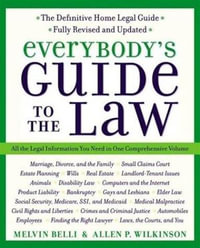
eBOOK
RRP $27.49
$21.99
OFF
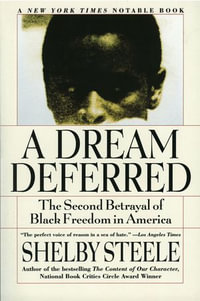
eBOOK
RRP $28.59
$22.99
OFF
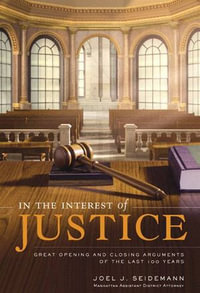
eBOOK
RRP $31.89
$25.99
OFF
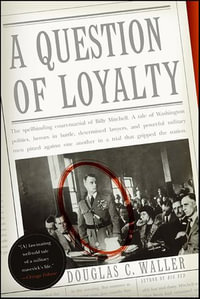
eBOOK
RRP $28.59
$22.99
OFF
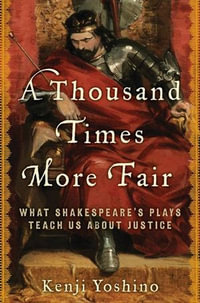
eBOOK
RRP $27.49
$21.99
OFF

eBOOK
eBook
RRP $51.69
$41.99
OFF

eBOOK
RRP $28.59
$22.99
OFF

eBOOK
RRP $24.19
$19.99
OFF

eBOOK
RRP $31.89
$25.99
OFF
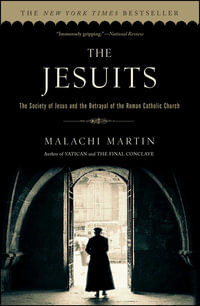
eBOOK
RRP $37.39
$29.99
OFF
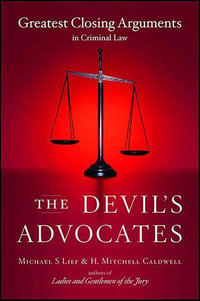
eBOOK
RRP $37.39
$29.99
OFF

eBOOK
RRP $28.59
$22.99
OFF

eBOOK
RRP $18.69
$14.99
OFF
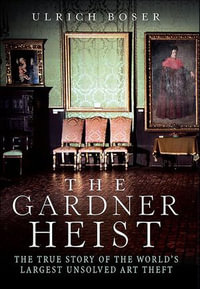
eBOOK
RRP $31.89
$25.99
OFF

eBOOK
RRP $13.19
$10.99
OFF
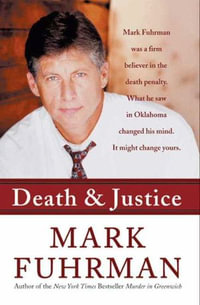
eBOOK
eBook
RRP $28.59
$22.99
OFF
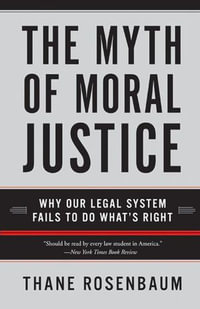
eBOOK
RRP $27.49
$21.99
OFF

eBOOK
RRP $30.79
$24.99
OFF



